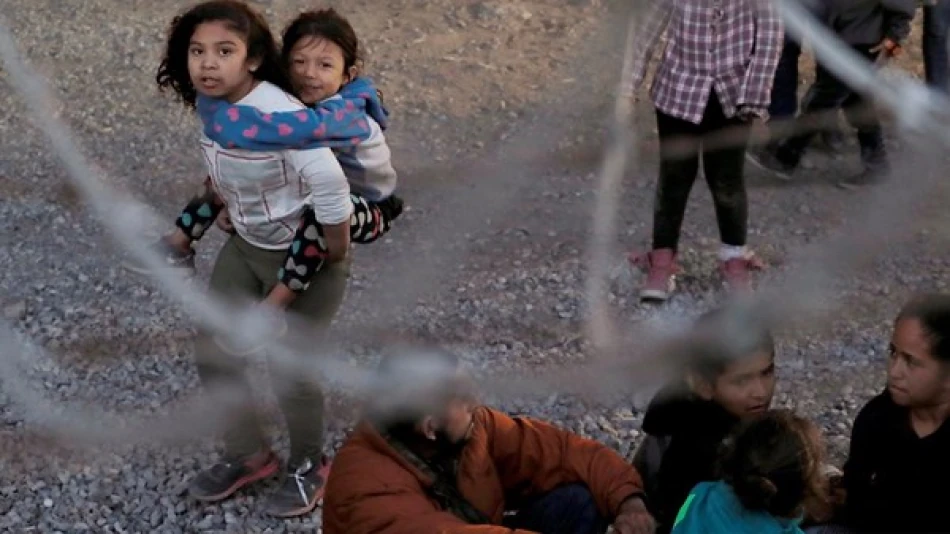
U.S. Court Halts Deportation of Unaccompanied Migrant Children, Protecting Vulnerable Minors
Federal Judge Blocks Trump's Attempt to Deport Unaccompanied Minors to Guatemala
A U.S. federal judge has issued an emergency order halting the Trump administration's plan to deport 10 unaccompanied migrant children to Guatemala, marking a significant legal challenge to the administration's aggressive immigration enforcement in its final days. The ruling highlights the ongoing tension between executive immigration policy and federal child protection laws.
Emergency Legal Intervention Stops Deportation Plans
Judge Sparkle Sooknanan of the U.S. District Court in Washington D.C. issued a 14-day restraining order on Sunday after the National Center for Immigration Law filed an emergency complaint on behalf of children aged 10 to 17. The advocacy group argued that the planned deportations would violate existing U.S. laws designed to protect unaccompanied minors.
The judge called for an urgent hearing, noting that the children appeared to be in the process of being deported. This swift judicial intervention demonstrates how immigration advocacy groups continue to use federal courts as a check on executive immigration policies.
Guatemala Agreement Marks Policy Shift
According to three U.S. officials—one current and two former—the Trump administration had reached an agreement with Guatemala allowing the deportation of unaccompanied children to the Central American nation. The deportations were scheduled to begin early this week, representing a significant departure from established protocols for handling migrant children.
Breaking with Established Child Protection Protocols
Under current federal law, unaccompanied migrant children who arrive at U.S. borders without parents or guardians are classified as "unaccompanied" and transferred to federally-managed shelters. These facilities serve as temporary housing while authorities work to place children with families or foster care—a process designed to prioritize child welfare over immediate deportation.
The Guatemala agreement would have bypassed this protective framework, potentially setting a precedent for future administrations to circumvent established child protection measures during immigration enforcement.
Legal and Policy Implications
This legal challenge reflects broader tensions in U.S. immigration policy between enforcement priorities and humanitarian protections. The case demonstrates how federal courts continue to serve as a critical check on executive immigration actions, particularly when they involve vulnerable populations like children.
The 14-day restraining order provides temporary relief but sets up a larger legal battle over the scope of presidential authority in immigration matters involving minors. The outcome could influence how future administrations handle unaccompanied migrant children and the extent to which international agreements can override domestic child protection laws.
The timing of this policy push—in the administration's final weeks—suggests an attempt to establish new precedents for immigration enforcement that could complicate policy reversals by the incoming administration.
Most Viewed News

 Layla Al Mansoori
Layla Al Mansoori






